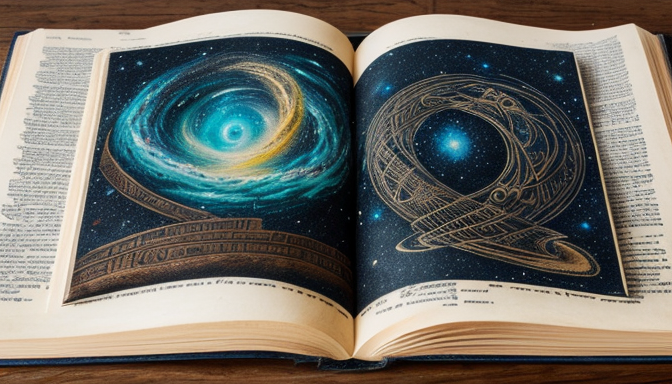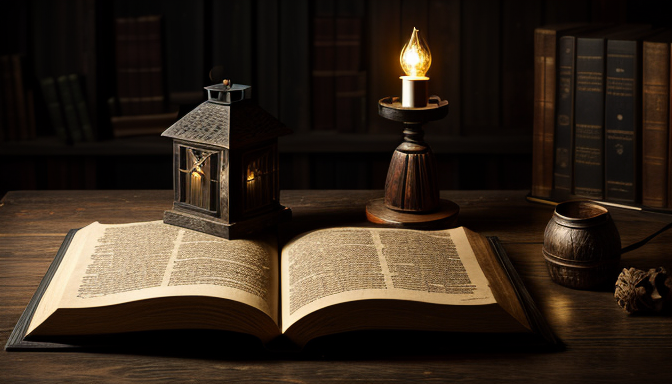Myths have always been the backbone of storytelling, weaving tales that resonate across generations. These ancient narratives are not just relics of the past; they are vibrant threads that enrich the fabric of literature. When we delve into the world of mythology, we uncover a treasure trove of pantheons, origin stories, and legendary heroes that continue to inspire modern writers. Think about it: how many of your favorite books are steeped in these ancient tales? From the epic battles of Greek gods to the moral dilemmas faced by heroes in Norse sagas, these myths create a foundational layer that writers build upon to craft their narratives.
Take, for example, the concept of the hero’s journey, a common theme in both ancient and contemporary literature. This archetype, often rooted in myth, showcases the trials and tribulations faced by protagonists. As readers, we are drawn into their struggles, experiencing their growth and transformation. Myths provide a lens through which we can explore complex human emotions and societal values, making the stories feel both timeless and relevant.
Moreover, ancient myths offer a unique way to immerse ourselves in fictional worlds. They allow us to explore the depths of human experience by connecting us to universal themes such as love, sacrifice, and the quest for identity. As we navigate these narratives, we find ourselves reflecting on our own lives, drawing parallels that deepen our understanding of both the text and ourselves.
The Role of Myth in Character Development
Myths have an incredible power to shape characters in literature, acting as the very foundation upon which modern heroes and heroines are built. Think about it: when we dive into the pages of a novel, we often encounter characters who seem to echo the ancient tales of gods, monsters, and epic quests. These archetypal figures provide a sense of familiarity, allowing readers to connect with their journeys on a deeper level. For instance, the classic hero’s journey, reminiscent of figures like Odysseus or Hercules, resonates through countless stories, from The Lord of the Rings to Harry Potter.
Moreover, these ancient myths often introduce us to complex pantheons and origin stories that enrich the narrative landscape. By exploring the motivations and struggles of characters inspired by these timeless tales, authors create a tapestry of human experiences that transcend cultural boundaries. For example, the theme of sacrifice, prevalent in myths such as the story of Prometheus, finds its way into modern literature, urging characters to confront their own moral dilemmas.
In essence, myths serve as a treasure trove of character templates, offering insights into the human condition and the trials we all face. By tapping into these ancient narratives, writers can craft characters that not only entertain but also reflect our shared struggles, dreams, and aspirations. So, the next time you encounter a character that feels both familiar and profound, remember that they may just be a modern echo of the myths that have captivated humanity for centuries.

Mythical Themes in Literature
When you dive into the world of literature, it’s like stepping into a vast ocean where ancient myths serve as the foundation of many stories. These myths, rich with pantheons and origin stories, create a tapestry that weaves through the fabric of fictional worlds, offering readers a deeper narrative immersion. Think about it: every hero’s journey echoes the trials of ancient demigods, and every tale of love often mirrors the passionate affairs of gods and mortals alike.
For instance, consider the theme of heroism. From the epic quests of Odysseus to the modern-day adventures of characters like Harry Potter, the essence of a hero often stems from mythological roots. These characters face challenges that test their mettle, much like the legendary figures who came before them. It’s not just about slaying dragons or saving the day; it’s about the internal battles they fight, reflecting our own struggles.
Moreover, themes of love and sacrifice are prevalent in countless narratives. Think of the tragic love story of Orpheus and Eurydice, which has inspired countless adaptations. Such themes resonate across cultures and eras, highlighting the universal truths of human emotions. The mythical themes in literature act as a bridge, connecting us to our ancestors and reminding us that, despite the passage of time, our stories are remarkably similar.
In conclusion, the influence of ancient myths on literature is profound. They not only enrich the narratives but also enhance our understanding of the human condition, making the reading experience both engaging and enlightening.
Frequently Asked Questions
- How do myths influence modern literature?
Myths serve as a rich source of inspiration for modern literature, providing archetypes and themes that resonate deeply with readers. Think of them as the roots of a tree, grounding stories in universal truths that connect us all.
- What are some common themes found in myths?
Common themes include heroism, love, betrayal, and sacrifice. These themes appear across cultures and time periods, acting like a thread that weaves through the fabric of storytelling, reminding us of our shared human experiences.
- Can you give examples of mythical characters in literature?
Absolutely! Characters like Odysseus from Homer’s “The Odyssey” or King Arthur from Arthurian legends are perfect examples. They embody traits that resonate with readers, making them timeless figures in literature.
- Why are archetypal characters important?
Archetypal characters provide a familiar framework for readers, allowing them to relate to the struggles and triumphs depicted in stories. They act as mirrors reflecting our own journeys, making literature more impactful.

Recent Comments